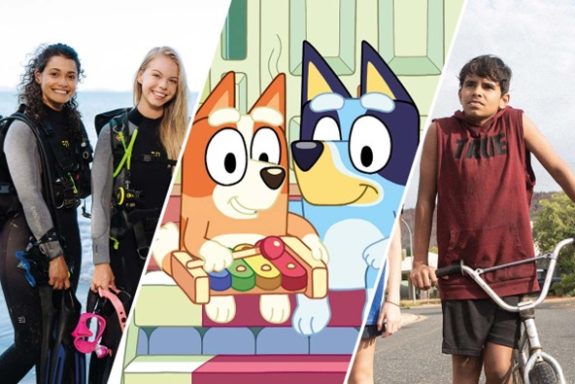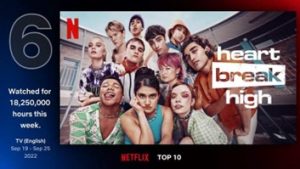Advancing the Quest for Popular Entertainment

By Denis Bright
Faced with months of lockdown during the COVID-19 pandemic, Australian households have been in revolt against hours of uninspiring free to air television network options. Householders are firmly wedded to subscriptions to commercial streaming services whose programme choices are quite removed from the controls available to the Australian Communications and Media Authority (ACMA).
Years of financial austerity in Australian Government media policies have certainly broken the hegemony of the free to air television networks.
The costs of subscriptions to streaming services does not seem to be a barrier. A Netflix premium subscription costs $22 per month. Foxtel requires commitment to a variety of twelve-month subscription plans at rates of up to $120/month for the Platinum Premier Plus Package. Subscription costs can be halved by reduced access options. The Disney channel is included in all options. Subscribers can choose to specialize in sporting channels, movies or access to television channels covering crime, history or home and reality series.
The Australian Communications and Media Authority (ACMA) shows the trendlines in viewing behaviour in its annual surveys. The arrival of Catch-up television has temporarily saved free to air television despite the strong challenges from subscription services and free access to some social media channels such as YouTube, TikTok and Facebook. A typical viewer spends 26.6 hours per week watching video content according to the latest ACMA survey which has been processed from data collected in June 2021. Time spent watching videos from subscription services including Foxtel at 10.2 hours in the survey week slightly exceeds the use of free to air television and catch-up television.
The popularity of the newer streaming services obviously reflected a profound dissatisfaction with the content of free to air drama programmes. The quest for exciting viewing might compromise quality viewing.
Research by the ACMA on the trending production hits might assist in developing alternative themes for more discerning audiences that are more relevant for Australian audiences.
Netflix claims to be reviewing its trending movies as shown by the background notes on Jason Wiese as team writer for Netflix:
The Background: Jason Wiese writes feature stories for CinemaBlend’s SEO Team. His occupation results from years dreaming of a filmmaking career, settling on a “professional film fan” career, studying journalism at Lindenwood University in St. Charles, MO (where he served as Culture Editor for its student-run print and online publications), and a brief stint of reviewing movies for fun.
What He’s Into: Readers may notice a recurring theme of horror and superhero-related content (especially in regards to Batman) in much of Jason’s work, but his favorite film of all time is more in line with traditional action/adventure stories: Raiders of the Lost Ark. His favorite TV series is the gritty, grounded crime thriller Breaking Bad and if you catch him reading anything, it is probably a comic book (and, more often than not, one featuring Batman). More important to him than entertainment, however, are his wife and two dogs.
What He’s Excited About Right Now: Two of Jason’s all-time favorite movie franchises (Indiana Jones and Evil Dead) are making a comeback in 2023 with James Mangold’s fifth instalment and Evil Dead Rise, which has made staying calm quite a struggle for him lately. However, even more than either of those sequels, he is especially looking forward to returning to Matt Reeves’ vision of Gotham City in the upcoming follow-up to The Batman.
The latest survey by the ACMA shows that usage of Foxtel is eclipsed by other streaming services which can bypass traditional Australian content regulations.
The hierarchy of online video access is monitored by ACMA
Use of Online Video Services June 2021

The appeal of the streaming services is so great that the Australian Government’s Screen Australia has invested in productions on these commercial services:
Stan and Lionsgate have commissioned the brand new Stan Original Series Prosper, with major production investment from Screen Australia. Produced by Lingo Pictures, this razor-sharp drama of faith, ambition and divided loyalties is set in the inner sanctum of a family bound together by unfathomable wealth and unchecked power as they build an evangelical megachurch hell-bent on global domination.
In the case of public television networks offered through the ABC and SBS, government resourcing has been eroded by years of financial austerity. This austerity extended resources available from the Australian government to the wider arts sector.
This was apparent in the last federal LNP budget for 2022-23. Expenditure on the Australian Film Television and Radio School, Screen Australia and public sector television services were cut in real terms after allowing for inflation. Even in these public broadcasting networks, Australian content has artificially been maintained by current affairs segments with the support of quiz programmes. SBS is notorious for its repeats of imported low-cost documentaries and for saturation levels of advertising to keep the network in operation and to support its multicultural commitments.
SBS News (30 March 2022) noted that funding for the arts had been slashed from $989 million in 2021-22 to $799 million in 2022-23, and even further to $736 million in 2023-24. Limelight magazine elaborated on the consequences of these cut-backs:
With spending set to fall from $990 million in 2021-22 to $799 million in 2022-23, arts and cultural development funding will tumble from $159 million to just $20.3 million.
Meanwhile forward estimates paint a dire picture for government film and television investment, particularly for funding body Screen Australia, as well as a big reduction in funding for regional arts.
Dr Ben Eltham, a lecturer in Monash University’s School of Media, Film and Journalism, tells Limelight there is “grinding austerity baked into the next three or four years.”
Such long-term deficiencies in public funding cannot be addressed overnight. It takes time to train a new generation of competent producers, writers and actors.
Screen Australia generates small amounts of additional revenue from its own investment in commercial network productions according to the latest annual report available for the 2020-21 financial year.
Michelle Rowland as the new Minister for Communications has been given the task of developing proactive media policies in the context of years of commitment to a neoliberal focus in our media policies.
With its partial ownership by Telstra in association with News Corp, Foxtel has a superior borrowing capacity than the Australian Department of Communications.
This gives Foxtel a real capacity to anticipate the programmes and news services which have wide appeal to audiences. The current borrowings by Foxtel alone approach the total resourcing of the ABC Network for 2022-23 and are running at twice the current resourcing level of SBS.
 The investment by Netflix in The remake of Heartbreak High is attracting potential audiences on both the local and overseas markets. The original television series was partially funded by public television from BBC2. A successful film sequel was released as The Heart Break Kid in 1993.
The investment by Netflix in The remake of Heartbreak High is attracting potential audiences on both the local and overseas markets. The original television series was partially funded by public television from BBC2. A successful film sequel was released as The Heart Break Kid in 1993.
More government funding of public broadcasting networks and cinema and documentary productions through Screen Australia will not restore old viewing habits which may have been state of the art policies during the 1970s when the intrusions of commercial streaming services were not a problem.
Any changes in media policy must also interact with the enormous profile video sharing and social media platforms which can be accessed without cost. YouTube is the second most popular web site which is owned by Google. Globally, Facebook and TikTok attract billions of users.
Australia could easily establish a Dreamtime Hub to share our diverse national values through the uploading of popular entertainment, videos and soft news from our own communities and to invite feedback from viewers overseas. I am sure that there are thousands of creative people who would like to have their say and to export an authentic voice to the global community and to receive feedback for their best efforts.
In times of budget austerity, funding for the Dreamtime Hub could also come from registrations from artists and writers who want to promote their content after registration and commitment to the ground rules of an innovative network under the sponsorship of Screen Australia or another appropriate ethical organization. Trending issues from the Dreamtime Hub could be used to liven up existing news and current affairs programmes to permit contributions from the grassroots to be heard in the corridors of power and political influence. This might beat any remakes of those coming-of-age themes like Heartbreak High.
Let’s support the media revolution on behalf of deprived Australian audiences who spend their hard-earned savings in a quest for vibrant productions that seem to take everyone back to a quest for nostalgia over quality entertainment.
 Denis Bright is a financial member of the Media, Entertainment and Arts Alliance (MEAA). Denis is committed to consensus-building in these difficult times. Your feedback by using the Reply button on The AIMN site is always most appreciated. It can liven up discussion. I appreciate your little intrusions with comments and from other insiders at The AIMN. Full names are not required when making comments. However, a valid email must be submitted if you decide to hit the Reply button.
Denis Bright is a financial member of the Media, Entertainment and Arts Alliance (MEAA). Denis is committed to consensus-building in these difficult times. Your feedback by using the Reply button on The AIMN site is always most appreciated. It can liven up discussion. I appreciate your little intrusions with comments and from other insiders at The AIMN. Full names are not required when making comments. However, a valid email must be submitted if you decide to hit the Reply button.
Like what we do at The AIMN?
You’ll like it even more knowing that your donation will help us to keep up the good fight.
Chuck in a few bucks and see just how far it goes!
Your contribution to help with the running costs of this site will be gratefully accepted.
You can donate through PayPal or credit card via the button below, or donate via bank transfer: BSB: 062500; A/c no: 10495969










10 comments
Login here Register here-
Tessa_M -
James Robo -
Maureen -
Leila -
New England Cocky -
Clakka -
Michael Taylor -
Indigo -
Indigo -
rubio@central coast
Return to home pageEntertaining and well researched, Denis
I like the idea of having a TikTok style Australian forum to reflect the diversity of Australian life and to share our vision with the wider humanity. Let Austrlaians be their own diplomats.
Will Heartbreak High be a new take on adolescent adventures?
Audiences are in revolt against free to air television and the substitution of real news and investigative documentaries by endless speculative discussion as good current affairs
@ Leila: The COALition misgovernment had a policy of deliberately undercutting Australian media and the Arts in general because that was the instruction from Murdoch et al. It was to be ”death by a thousand cuts” so that they could plead ”it wasn’t us”.
.
”It’s time” to remember the important role that the Arts played in removing the Billy MacMahon COALition misgovernment in 1972 and protect our Australian cultural heritage from the onslaught of American fantasy lives that do NOT represent the real events & social conditions of America today.
Yeah, good article. Love the “Dreamtime Hub”, bring it on. The crushing of Oz media and entertainment has been an agony and a treachery against first class Oz talent, writers, financiers, technical and in-front-of-camera. Sickened by the tsunami of imported dross, the bad-thinking, the dumbing-down, glorification, bling and revisionism. Whilst there needs be room for quality imports, the current saturation exposes the Oz masses to a deacculturation and lost ability to reflect on our own country, style, stuff-ups and future. Enough – of our hopes and dreams and nightmares and fantasies being supplanted by those giving rise to chaotic Europe and nihilistic America.
Interesting stuff, Denis.
TikTok is popular with the In-Betweener Age Groups. Our own Australian TikTok is a great idea to bring masses of people to the media for self-expression and exchange of ideas. Overseas networks dabbling in Australian contemnt could not be expected to understand the diversity of Australian culture and its growing links to indigenous heritage. Why not ask your new MPs to work on this idea which offers a media revolution at little cost as participants would all need to be registered to avoid endless checking of each item? The site would need its ground-rules. Genuine participants would never want to be excluded from the Dreamtime Hub site.
Australian Tik -Tok hub is a real necessity
Good to see your comments on this important social issue, New England Cocky